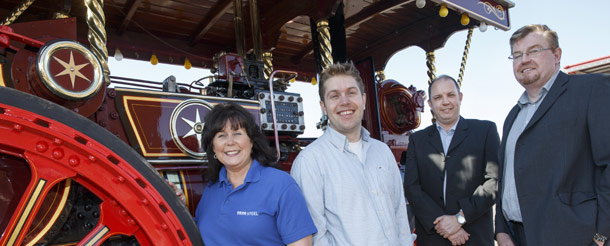 Tata Steel teamed up with Carbon Trust Wales to hold a steam workshop for over 80 employees and 20 representatives from other Welsh organisations after saving £185,000 through working with the Carbon Trust.
Tata Steel teamed up with Carbon Trust Wales to hold a steam workshop for over 80 employees and 20 representatives from other Welsh organisations after saving £185,000 through working with the Carbon Trust.
The steel manufacturer has previously worked with Carbon Trust Wales to reduce energy consumption on several of its sites and recently made the impressive saving of £185,000 by streamlining the steam system at their Trostre plant to make it more energy efficient.
The Making Sense of Steam workshop aimed to help other organisations identify whether steam might be an appropriate energy system for their sites. Speakers from the Carbon Trust and Tata Steel outlined the benefits of using steam systems and discussed appropriate alternatives where savings could be made.
The workshop was held at the Tata Steel Port Talbot plant, with an optional tour of the site’s extensive steam system afterwards. The Trostre plant, which now uses heat recovered from the site’s compressors and furnaces instead of gas, was used a case study.
David Moore, account manager at Carbon Trust Wales, said: “Lots of businesses have steam systems and require specialist knowledge to enable efficiencies in operation to be achieved. This event was about sharing information and experience with steam systems to help businesses evaluate whether this type of system should be their preferred choice. The workshop also looked at the potential from heat recovery in subsidising the energy used in steam generation or as an alternative, which is where businesses could really cut costs and save energy.
“It was fantastic to see representatives from so many of Tata Steel’s UK sites, as well as representatives from Tata Europe and from Welsh steam using businesses. We hope that we managed to de-mystify steam for those who attended and we thank Tata Steel for their collaboration.”
Ben Burggraaf, Energy Optimisation Manager for Tata Steel, said: “Steam, and more specifically hot water, will play a pivotal role in the Future Low Carbon Economy as it provides a cost effective way to distribute & use recovered heat.”



















